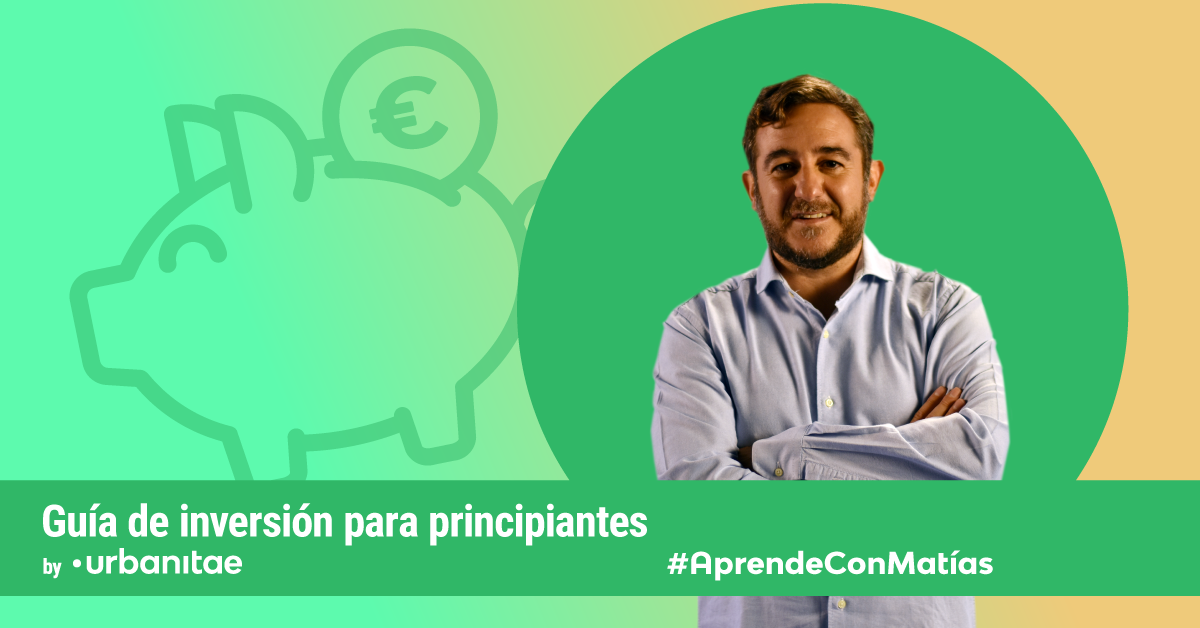


As in many other areas of life, good investing involves a significant part of avoiding mistakes. These four basic rules of investing will help you avoid stumbling more than necessary.
The first thing to clarify is that the aim of these rules is not to get rich, but to avoid losing your money. Following these recommendations will allow you to make more informed investment decisions… and save you from unpleasant surprises.
As we’ve already told you, the first requirement to start investing is to have saved money and have your financial house in order. From there, decisions depend on each investor’s profile and the risk we want to take. And risk is closely linked to the stage of life we are in. Surely, we won’t want to invest the same way if we’re thinking of buying a flat or if we want to strengthen our retirement…
In any case, general recommendations suggest saving around 10% of your salary and investing about 10% or 15% of your income. This percentage could increase to 30% or 40% depending on what we mentioned: the stage of life and each person’s risk tolerance. However, the basic rules of investing apply to all investors. Here they are:
The saying “don’t put off until tomorrow what you can do today” also applies to investing. In fact, if you haven’t started yet, you’re in luck because now is always the best time. Unless your goal is to get returns in a short time. For most investors, it’s never too late, because, in the long run, the market always grows. And because returns, however small, multiply your savings over time.
We’ve already talked to you about compound interest. Initially, interest makes your investment grow a little, but then that interest is applied to the slightly larger total. Consequently, the growth of your savings is not arithmetic, but geometric. To give you an idea: imagine you put 1,000 euros in a piggy bank and add 30 euros each month. After 20 years, you would have 8,200 euros. If instead of the piggy bank, you chose a deposit at 2%, in the 20th year you would have 10,400 euros. After 30 years, it would be 16,700…
The economy has its cycles. Normally, if it has been growing for a long time, there will come a time when it stops and enters a recession – well, unless you live in Australia. This affects the valuation of assets – those in which you can invest – although its effect is not uniform. Additionally, there may be complications in one sector but not in others. In short, it’s difficult to beat the market: to predict what will happen to take advantage.
What doesn’t change is that the market, like the economy, always grows in the long term. Hence, it’s never too late to start investing – without being carried away by euphoria or the decisions of other investors. As Warren Buffett said, “To make money in investing, you need to buy good companies and hold them for long periods of time.” Of course, the first part is easier when you’re Warren Buffett…
Ray Dalio, founder of the hedge fund Bridgewater Associates and considered one of the most influential people in the world, states that diversification is the “holy grail” of investing. The key to success is simple: “Find 15 or 20 good sources of income that are not correlated with each other.” Again, the experience of being Ray Dalio counts for a lot.
But the idea is clear. If we invest in different assets, different sectors, different countries, or at different times, we dilute the risk. Urbanitae’s proposal is based on diversification: starting with small amounts, it allows investing in a variety of independent projects and diversifying by type of asset and location.
Even the most classic investment options deserve a careful examination. If you have doubts between TIN and TAE, don’t know exactly what a coupon bond is or the difference between gross and net return, ask before deciding. And make sure to invest in something you can understand how it works. Part of the disaster that occurred during the Great Recession – the global crisis that started in 2007 – was that many invested in products – derivatives – like CDS or CDO, which were hard to untangle.
In summary, don’t get carried away or make hasty decisions. And choose investments that you can explain to your parents… or that you can touch.
diego.gallego@urbanitae.com